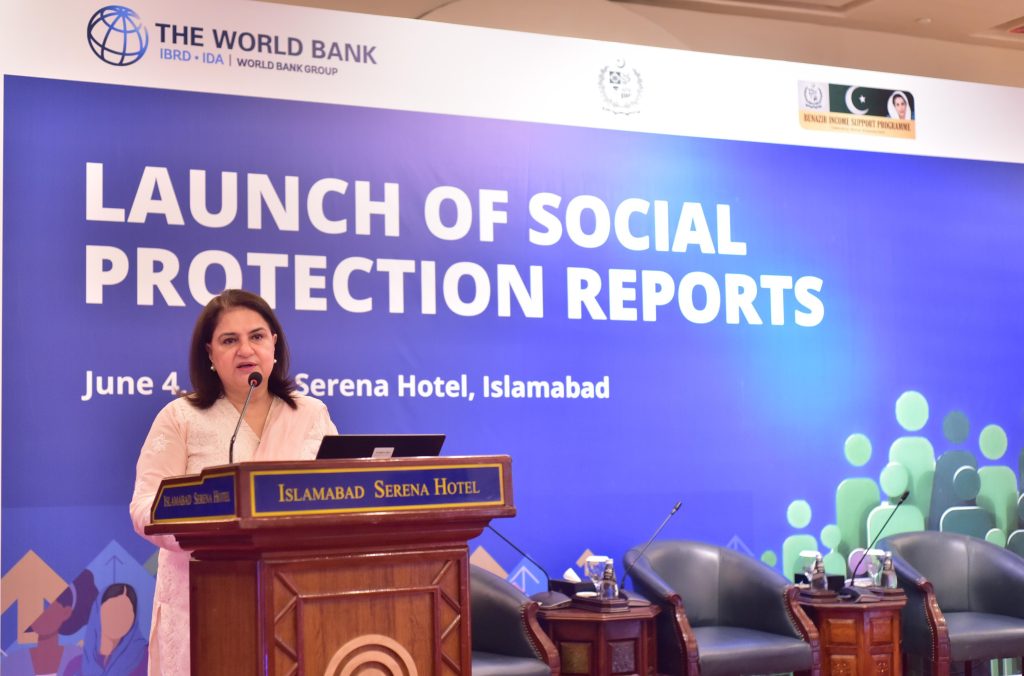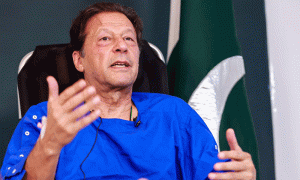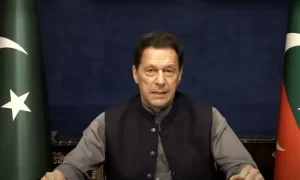
CHAIRPERSON BISP SENATOR RUBINA KHALID ATTENDS JOINT WORLD BANK AND FCDO EVENT FOR LAUNCH OF SOCIAL PROTECTION PUBLICATIONS
BISP has evolved into South Asia’s leading social safety net, reaching nearly 10 million families across Pakistan. Senator Rubina Khalid paid tribute to the visionary leadership of Shaheed Mohtarma Benazir Bhutto for championing the economic empowerment of women. She highlighted BISP’s timely support to the most vulnerable during the COVID-19 pandemic and the devastating floods of 2022.
Chairperson Benazir Income Support Programme (BISP), Senator Rubina Khalid, has said that BISP has evolved into South Asia’s leading social safety net, reaching nearly 10 million families across Pakistan. She made these remarks while addressing the joint World Bank and FCDO event held today for the launch of two key publications on social protection, where she participated as the Chief Guest.
Senator Rubina Khalid expressed deep gratitude to the World Bank, FCDO, and all development partners for their continued collaboration and support in strengthening Pakistan’s social protection landscape. She paid a heartfelt tribute to Shaheed Mohtarma Benazir Bhutto, whose visionary leadership led to the establishment of BISP in 2008, driven by her unwavering belief in the rights of the poor and marginalized.
The Chairperson highlighted BISP’s pivotal role in providing timely and targeted support during national emergencies, including the COVID-19 pandemic and the devastating floods of 2022. She noted that the publication “The Evolution of Benazir Income Support Programme’s Delivery Systems” documents BISP’s transformation through investments in digital technology that have enhanced emergency response and delivery systems. The second report, “Mind the Gap,” focuses on strengthening data systems, especially the National Socio-Economic Registry (NSER), which she emphasized should be centralized to further improve efficiency and targeting.
Senator Rubina Khalid reaffirmed BISP’s commitment to expanding partnerships with provinces, development agencies, and civil society to ensure inclusive and transparent service delivery. She underscored the need for continued investment in institutional capacity, communication, and grassroots engagement, echoing Shaheed Benazir Bhutto’s vision of empowerment through democracy. “Together, we can and must build a Pakistan where every citizen lives with dignity, security, and hope,” she said.
Later, Melis U. Guven, Lead Economist and Global Lead for Social Protection Delivery Systems at the World Bank, presented the report on BISP’s evolution. She commended BISP’s transformative journey toward digital payments, strengthened compliance monitoring, improved grievance redressal mechanisms, and evidence-based impact evaluations. She also recognized the NSER as the backbone of Pakistan’s social protection system.
The event also featured a panel discussion with Additional Secretary BISP Dr. Muhammad Tahir Noor, Director Policy Punjab Social Protection Authority Mr. Kashif Saeed, and Senior Programme Officer ILO Ms. Rabia Razzaque, who shared valuable insights on enhancing delivery and impact of social protection programmes in Pakistan.





